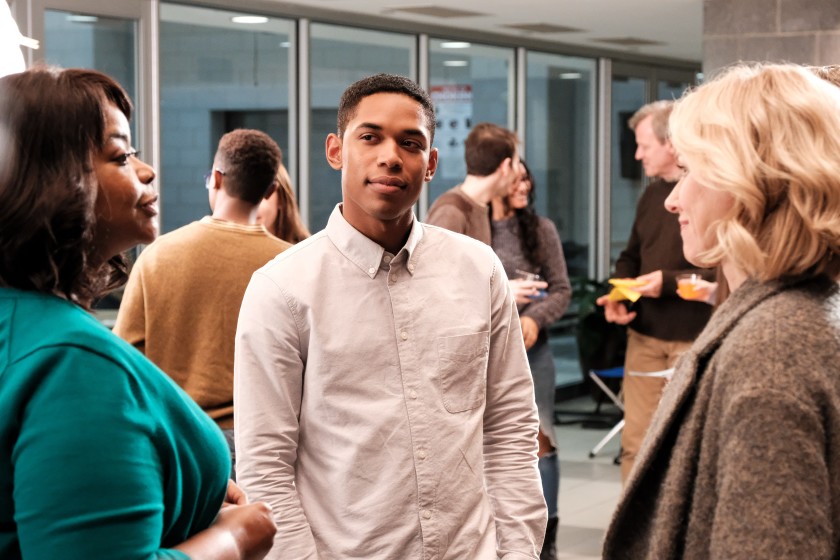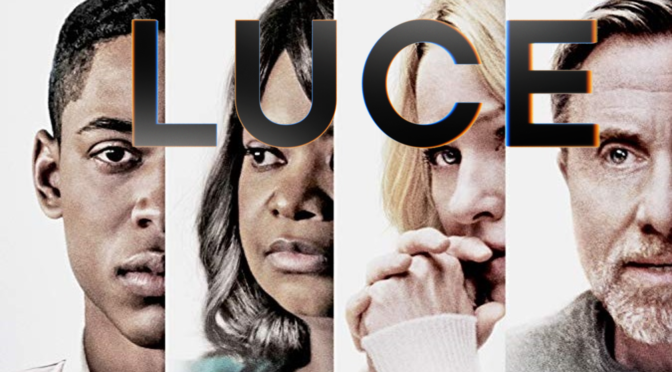Luce (Kelvin Harrison Jr.; It Comes at Night) is a golden boy. He’s a star athlete, incredible student, and beloved by his school staff. He gives speeches at school assemblies and is poised for a great future, but comes from a difficult past. He was adopted from war-torn Eritrea by wealthy white parents and his life seems perfect until a teacher (Octavia Spencer; The Help) finds fireworks in his locker and has suspicions about his true character. As Luce, Harrison brings a smile and expressions that seem kind, but could just as easily be fake and the slightly stilted body language plants enough seeds of doubt to make his teacher’s allegations possible. Similarly, Spencer seems like a dutiful teacher at first, but may have her own agenda.
Luce has a lot to say about race, primarily racial stereotypes. Luce is a model teenager that seems to excel in every field. Teachers give him the benefit of the doubt and, in some cases, even go out of their way to protect him, but that luxury isn’t afforded to every student. Other black students, doing the same behaviors as him, are quickly punished and suffer long term consequences. Luce’s friend tells him “You’re not really black” and Luce questions why he gets to be “one of the good ones” and others don’t. This is an incredibly complicated issue and the film uses this labeling to add layers to the doubts about Luce’s actions as the characters and the audience are asked to question their own predispositions to judging someone’s innocence.

In its lineup of topics, Luce goes after innocent targets with no discernable purpose. When Luce is initially accused of wrongdoing, his mother supports him at all costs, refusing to believe any allegation. His dad has less blind faith and when events create reasonable doubt, he spouts, “I just wanted a normal life. I didn’t want our family to be a political statement.”, implying that he not only regrets adopting Luce, but that they did it to make themselves seem progressive. It’s possible that there may be cases like this, but who is director and co-writer Julius Onah (The Cloverfield Paradox) trying to interrogate here, adoptive parents? Luce’s mother points out how they spent years going through therapy with their son to help him recover from the terrible life he faced in his home country, a gargantuan effort that few would be willing to do when a “normal family” is an option. To question people that choose to give a child from a better life, people to choose to face the difficulties the child may bring because they believe he or she is worth, is irresponsible and harmful. Some films tackle easy subjects, some tackle difficult subjects, but in this instance, the director punches down at people doing a demanding and altruistic deed, without provocation or reason. There are so many topics within race relations and stereotypes that deserve a proper examination, but Onah’s shotgun approach hits innocent targets in a way that raises questions about the level of care put into the film’s themes and creates mixed, troublesome messages in what could have been a perceptive thriller about racial stereotypes.

3/5 stars.
